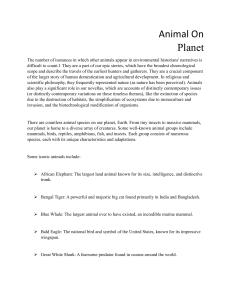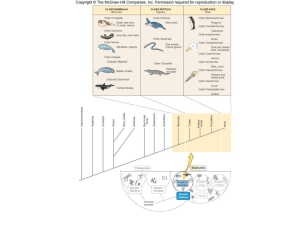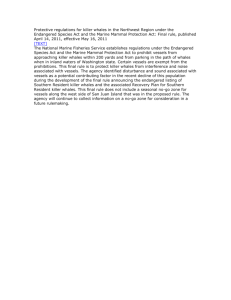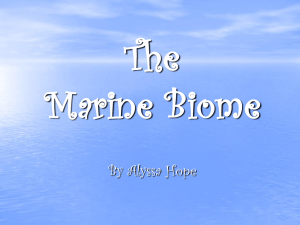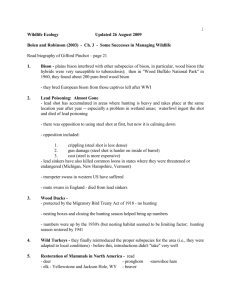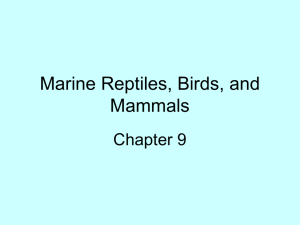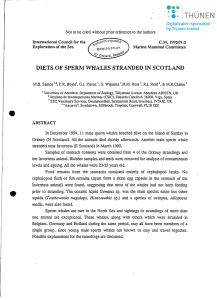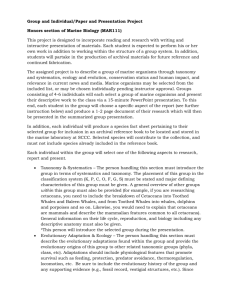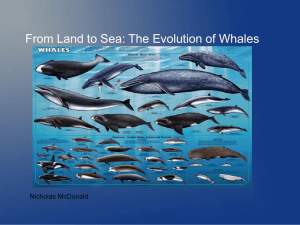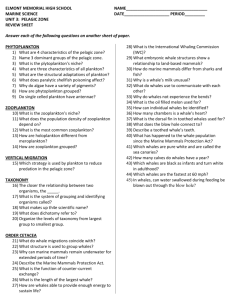Blog 1 Aman Sharma
advertisement
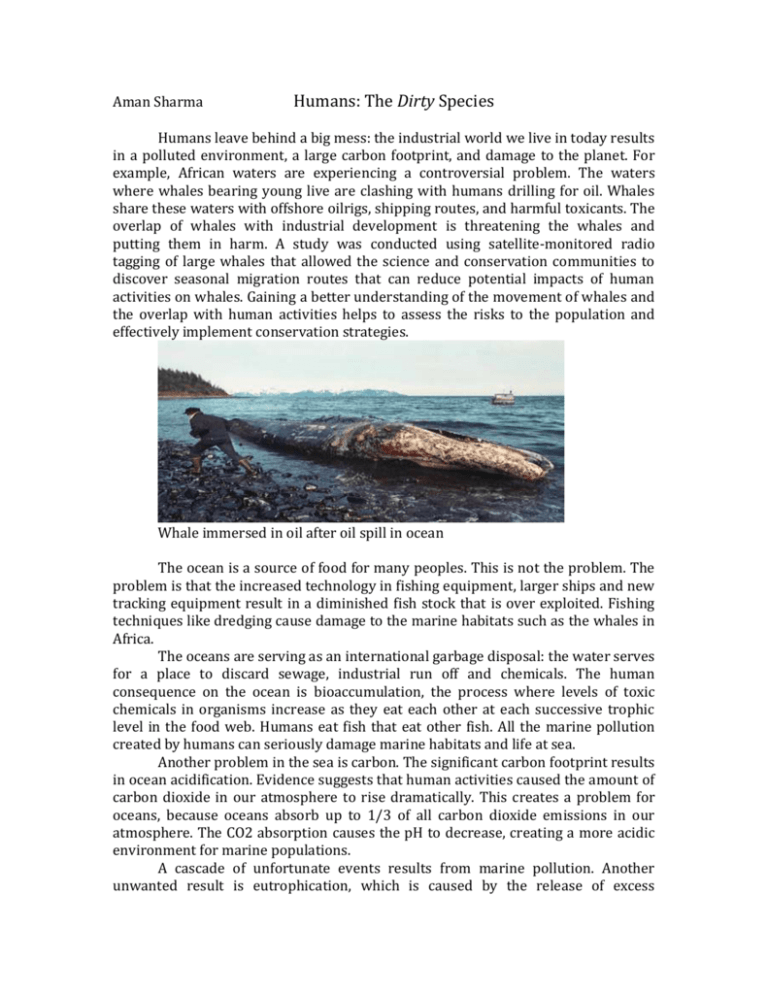
Aman Sharma Humans: The Dirty Species Humans leave behind a big mess: the industrial world we live in today results in a polluted environment, a large carbon footprint, and damage to the planet. For example, African waters are experiencing a controversial problem. The waters where whales bearing young live are clashing with humans drilling for oil. Whales share these waters with offshore oilrigs, shipping routes, and harmful toxicants. The overlap of whales with industrial development is threatening the whales and putting them in harm. A study was conducted using satellite-monitored radio tagging of large whales that allowed the science and conservation communities to discover seasonal migration routes that can reduce potential impacts of human activities on whales. Gaining a better understanding of the movement of whales and the overlap with human activities helps to assess the risks to the population and effectively implement conservation strategies. Whale immersed in oil after oil spill in ocean The ocean is a source of food for many peoples. This is not the problem. The problem is that the increased technology in fishing equipment, larger ships and new tracking equipment result in a diminished fish stock that is over exploited. Fishing techniques like dredging cause damage to the marine habitats such as the whales in Africa. The oceans are serving as an international garbage disposal: the water serves for a place to discard sewage, industrial run off and chemicals. The human consequence on the ocean is bioaccumulation, the process where levels of toxic chemicals in organisms increase as they eat each other at each successive trophic level in the food web. Humans eat fish that eat other fish. All the marine pollution created by humans can seriously damage marine habitats and life at sea. Another problem in the sea is carbon. The significant carbon footprint results in ocean acidification. Evidence suggests that human activities caused the amount of carbon dioxide in our atmosphere to rise dramatically. This creates a problem for oceans, because oceans absorb up to 1/3 of all carbon dioxide emissions in our atmosphere. The CO2 absorption causes the pH to decrease, creating a more acidic environment for marine populations. A cascade of unfortunate events results from marine pollution. Another unwanted result is eutrophication, which is caused by the release of excess nutrients into coastal areas via streams and rivers. Extra nutrients in the sea lead to an abundant amount of phytoplankton growth. When they die, there is a rapid increase in decomposition of the dead organisms by oxygen using bacteria, so oxygen levels are depleted, and death via oxygen starvation occurs abundantly in organisms such as fish. Overall, the issue of human impact on the environment is problematic and needs to be addressed particularly in the oceans regarding marine life. We cannot afford to spill our sewage, leave a carbon footprint, or create an environment that kills off marine animals. http://www.sciencelearn.org.nz/Contexts/Life-in-the-Sea/Science-Ideas-andConcepts/Human-impacts-on-marine-environments http://www.sciencedaily.com/releases/2014/02/140205143804.htm http://seawayblog.blogspot.com/2009/03/exxon-valdez-20-years-afterecological.html
